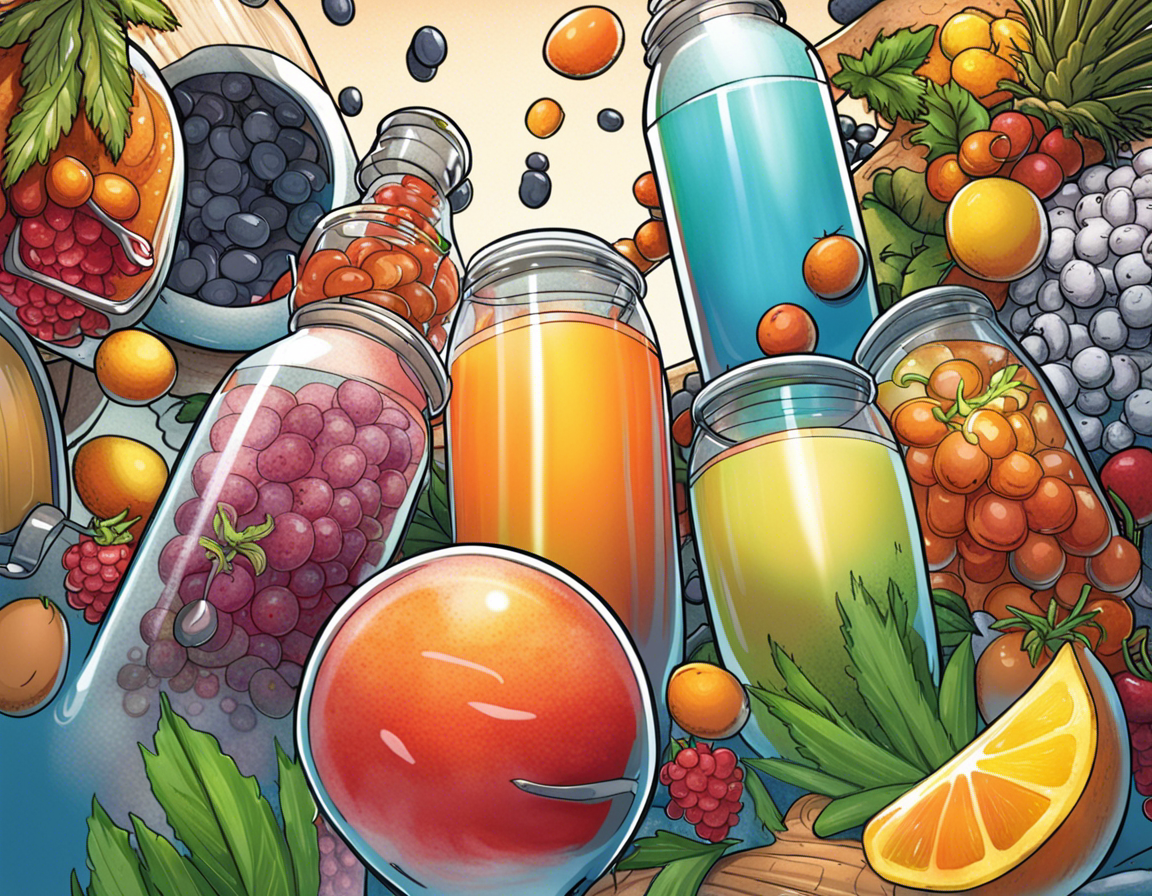Juice Plus Vs Vitamins

What is Juice Plus?
Juice Plus is a dietary supplement made from concentrated fruits, vegetables, and grains. It is sold in the form of capsules, powders, and chewable tablets. The company claims that Juice Plus is a more convenient way to get the nutrients of fruits and vegetables than eating them whole. Let's take a more in-depth look into this product.
A brief history
Juice Plus was created in 1970 by Jay Martin, a chiropractor from Memphis, Tennessee. According to the Juice Plus website, Dr. Martin was inspired by the work of Dr. Max Gerson, who developed the Gerson Therapy in the 1930s. The therapy is based on the idea that raw fruit and vegetable juices can detoxify and rejuvenate the body.
After years of research, Dr. Martin created a blend of 17 different fruits, vegetables, and grains that could be dried and made into a powder. He called this powder Juice Plus+. The powder could be mixed with water or added to food to make it more nutritious.
In 1993, the National Institute of Health (NIH) conducted a clinical study on the effects of Juice Plus+ on healthy adults. The study found that Juice Plus+ increased antioxidant levels in participants and reduced oxidative stress. These findings were published in The American Journal of Clinical Nutrition.
The NIH conducted another study in 2006 to see if Juice Plus+ could reduce inflammation and improve heart health in adults with atherosclerosis (narrowing of the arteries). The study found that Juice Plus+ did not have any effect on inflammation or heart health. However, participants who took Juice Plus+ did have lower levels of bad cholesterol (LDL) and higher levels of good cholesterol (HDL).
In 2010, the NIH conducted a third clinical study on the effects of Juice Plus+ on children's health. The study found that children who took Juice Plus+ had lower levels of oxidative stress and higher levels of certain antioxidants. These findings were published in The Journal of Pediatrics
The science (or lack thereof) behind Juice Plus
Juice Plus is a dietary supplement made by the Juice Plus Company. The company was founded in 1970 by Jay Martin, a businessman and self-proclaimed nutritionist.
The supplements are made from fruits, vegetables, and grains, and are sold in the form of capsules, powders, and chewables. Juice Plus is marketed as a way to get all the benefits of fruits and vegetables without having to actually eat them.
The company claims that their products are backed by science, but there is very little scientific evidence to support these claims. In fact, most of the scientific evidence that does exist was either funded by the Juice Plus Company or conducted by researchers with financial ties to the company.
One study that was NOT funded by the company did find some benefits associated with taking Juice Plus supplements. However, these benefits were found in a group of athletes who were already eating a healthy diet and exercising regularly. It's not clear if Juice Plus would offer any additional benefits to someone who was not already following a healthy lifestyle.
Overall, there is no scientific evidence that taking Juice Plus supplements will provide any real health benefits. If you're looking for a way to improve your health, you're better off eating a healthy diet and exercising regularly.
What are vitamins?
Vitamins are nutrients that are essential for human health. They are important for many biochemical reactions in the body and they help to keep the immune system functioning properly. vitamins can be found in a variety of foods, but they are also available in supplement form.
The different types of vitamins
Vitamins are essential nutrients that the body needs to function properly. There are 13 essential vitamins — vitamins A, C, D, E, K, and the B vitamins (thiamine, riboflavin, niacin, pantothenic acid, biotin, vitamin B-6, vitamin B-12 and folate).
Vitamins have different roles in the body:
-Vitamin A helps to keep eyes and skin healthy.
-Vitamin C helps to protect cells and keeps them healthy.
-Vitamin D helps to maintain bones and teeth.
- Vitamin E is an antioxidant that helps to protect cells from damage.
- Vitamin K helps with blood clotting.
- The B vitamins help the body to convert food into energy.
Most people should be able to get all the vitamins they need by eating a healthy balanced diet. However, some people may need to take supplements if they have certain health conditions or they don't eat a varied diet.
The science behind vitamins
Vitamins are a group of organic compounds that are essential for human health. Vitamins are classified as either water soluble or fat soluble. Water soluble vitamins are not stored in the body and need to be consumed daily. Fat soluble vitamins are stored in the body and can be consumed less often.
There are 13 essential vitamins: vitamin A, vitamin B1 (thiamine), vitamin B2 (riboflavin), vitamin B3 (niacin), vitamin B5 (pantothenic acid), vitamin B6, vitamin B7 (biotin), vitamin B9 (folate), vitamin B12, vitamin C, vitamin D, vitamin E and vitamin K.
Vitamins are essential for human health because they perform a variety of functions in the body. For example, vitamins A, D, E and K are important for maintaining healthy skin and bones. Vitamins C and B6 are involved in immune function and energy metabolism, respectively. Vitamin B12 is essential for the formation of red blood cells.
While it is possible to get all of the needed vitamins from a well-balanced diet, some people may require supplementation. This is especially true for people with certain medical conditions or who have difficulty absorbing nutrients from food.
Juice Plus vs vitamins- which is better?
When it comes to taking care of our health, we all want to make sure that we are doing everything we can to stay as healthy as possible. This often means taking supplements to ensure that we are getting all of the nutrients that we need. But with so many different options on the market, it can be hard to know which one is the best for us.
The pros and cons of each
When it comes to vitamins, there are two main options: Juice Plus and vitamins. Each option has its own pros and cons, so it’s important to weigh the options before making a decision.
Juice Plus is a supplement that contains concentrated fruits and vegetables. It’s available in capsules or gummies, and can be taken once or twice per day. One of the benefits of Juice Plus is that it’s easy to take; you don’t have to remember to take a pill every day, and you don’t have to worry about taking too much or not enough. Juice Plus is also more convenient than buying and eating fruits and vegetables, and it’s less expensive than some other supplements on the market.
However, Juice Plus has its drawbacks. Because it’s a supplement, it’s not regulated by the FDA, so there’s no guarantee that it contains what it claims to contain. In addition, Juice Plus doesn’t replace the need for fruits and vegetables; it simply supplements them. If you don’t eat a balanced diet, Juice Plus won’t make up for that.
Vitamins are another option for getting the nutrients your body needs. Vitamins are regulated by the FDA, so you can be sure you’re getting what you expect. They’re also less expensive than Juice Plus, and they can be found in most stores. However, vitamins have their own set of drawbacks. First, they need to be taken every day in order to be effective. This can be difficult to remember if you don’t have a daily routine or if you travel often. In addition, taking too many vitamins can be harmful; if you accidentally take two pills instead of one, you could end up with an overdose of certain vitamins.
The bottom line
So, what’s the bottom line? If you’re trying to decide between Juice Plus and vitamins, it really depends on your goals and preferences. If you’re looking for a nutrient-rich supplement to boost your health and fill in any gaps in your diet, Juice Plus is a great option. However, if you’re specifically looking for vitamins and minerals, you may want to opt for a supplement that contains them in higher concentrations.









